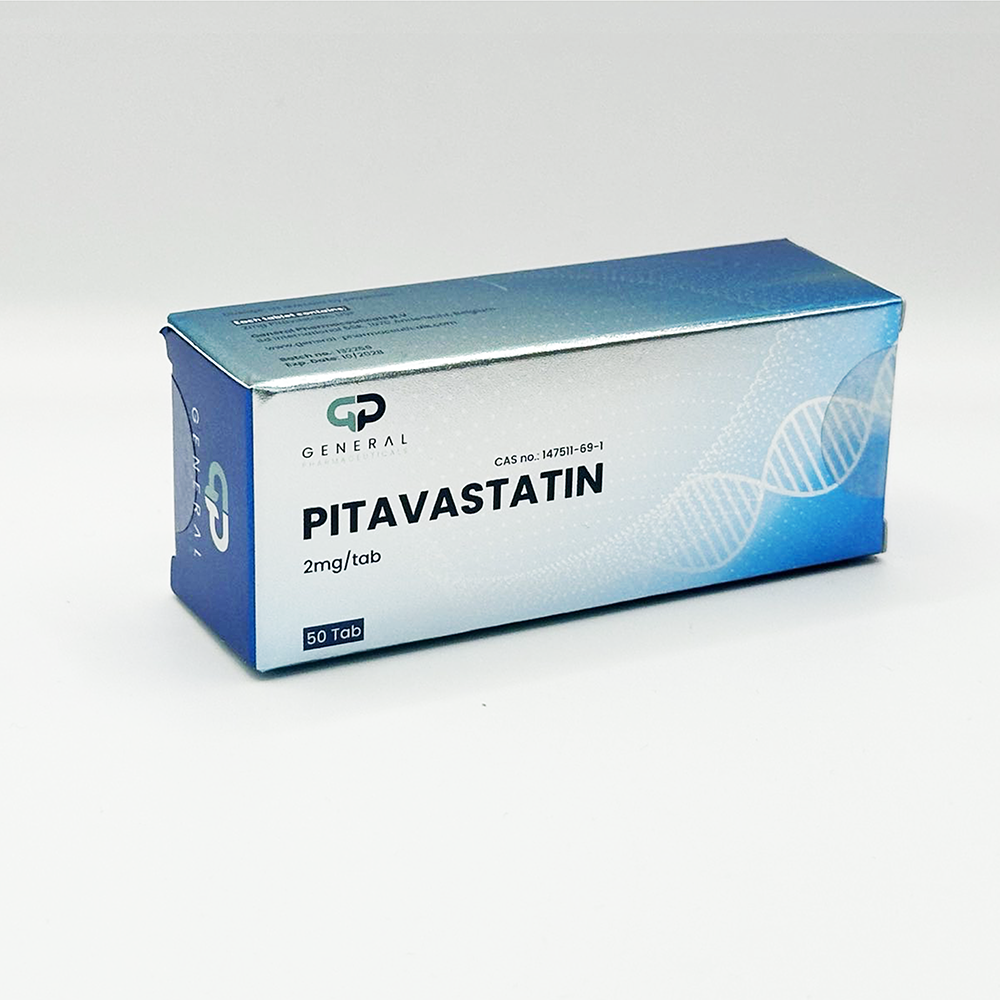
Pitavastatin
Pitavastatin is a highly effective cholesterol-lowering medication belonging to the statin class of drugs. Known for its potent ability to reduce low-density lipoprotein cholesterol (LDL-C), pitavastatin is commonly used to manage hypercholesterolemia and reduce the risk of cardiovascular diseases. Its unique pharmacological profile and minimal drug interactions make it a preferred choice for patients with specific health needs.
Medical Uses
Pitavastatin is primarily prescribed for the treatment of high cholesterol (hypercholesterolemia) and mixed dyslipidemia. It works to reduce LDL-C levels, increase high-density lipoprotein cholesterol (HDL-C), and decrease triglycerides, promoting a healthier lipid profile. By improving cholesterol balance, pitavastatin lowers the risk of atherosclerosis, heart attacks, and strokes, making it an integral part of cardiovascular disease prevention strategies.
Mechanism of Action
Pitavastatin inhibits the enzyme HMG-CoA reductase, which plays a central role in the production of cholesterol in the liver. By reducing cholesterol synthesis, the drug prompts an increase in the number of LDL receptors on liver cells, enhancing the clearance of LDL-C from the bloodstream. This dual action contributes to its efficacy in managing cholesterol levels while supporting overall cardiovascular health.
Side Effects
While pitavastatin is generally well-tolerated, some individuals may experience side effects. Commonly reported issues include muscle pain, fatigue, headache, and gastrointestinal symptoms such as nausea or diarrhea. Rare but serious side effects include myopathy, rhabdomyolysis, and liver enzyme abnormalities. Regular monitoring and communication with a healthcare provider can help mitigate these risks.
Interactions
Pitavastatin has fewer drug interactions compared to other statins, thanks to its minimal reliance on cytochrome P450 enzymes for metabolism. However, interactions may still occur with medications such as fibrates, niacin, and certain immunosuppressants, which can increase the risk of muscle-related side effects. Patients should inform their healthcare provider of all medications, supplements, and health conditions to ensure safe use.

